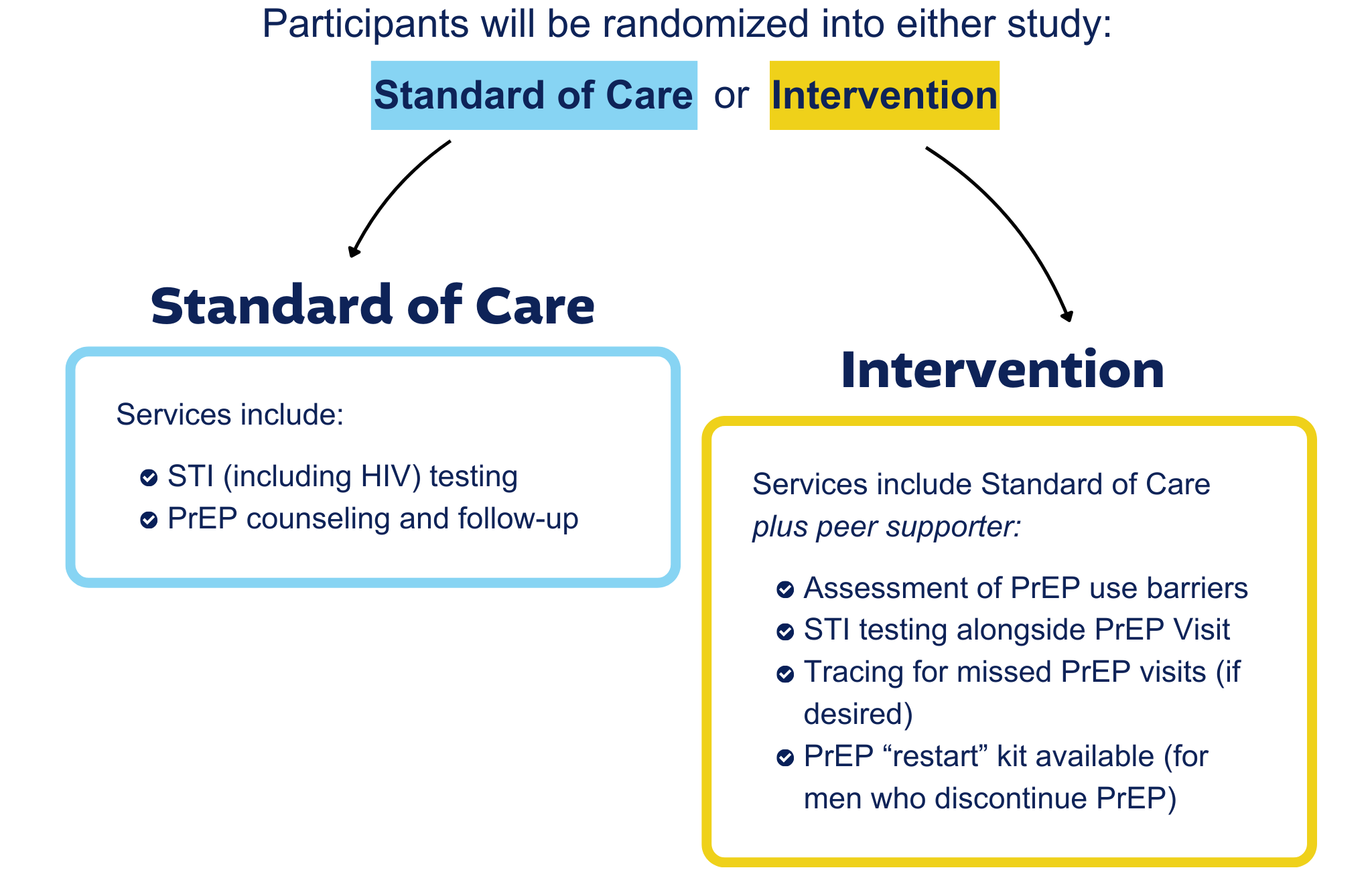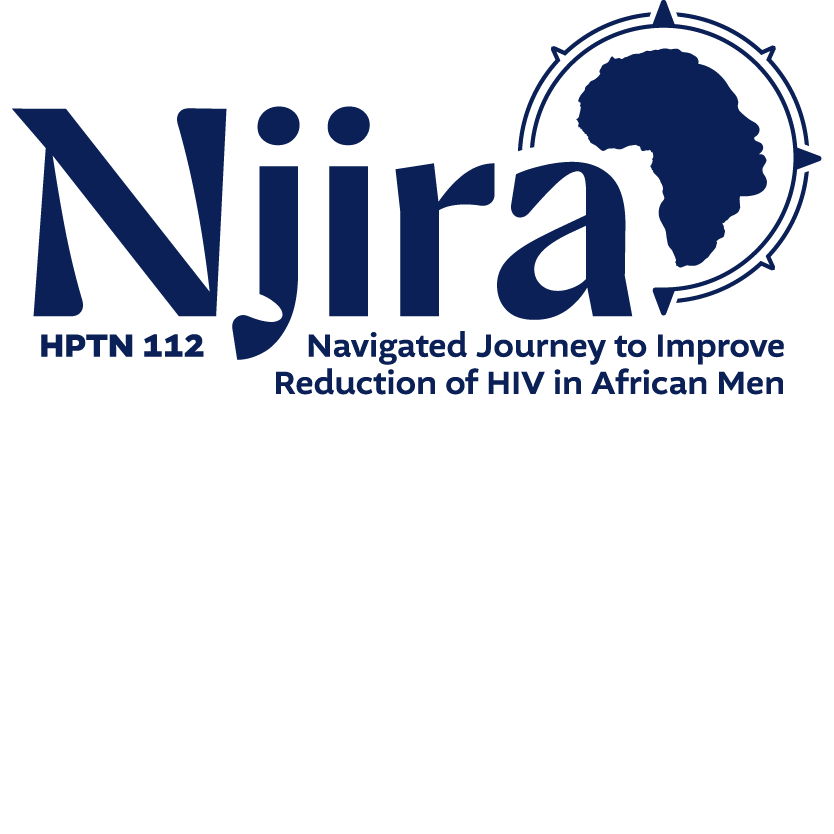
NJIRA, also known as HPTN 112, is a research study seeking to learn the prospective acceptability, benefits, and related costs of using peer supporters (like coaches or guides) to aid in the use of PrEP (pre-exposure prophylaxis) in the prevention of HIV. The study focuses on heterosexual men receiving care for sexually transmitted infections (STIs) in Lilongwe, Malawi.
Although the number of people living with HIV has decreased, progress towards ending the epidemic has slowed. Without a vaccine available, HIV prevention efforts remain crucial. These efforts include providing HIV treatment for those living with HIV and ensuring consistent PrEP use for among high HIV incidence populations. Challenges such as lack of referrals and low + inconsistent PrEP use have hindered the impact of PrEP in HIV prevention. Therefore, it is critically important to identify those high risk for HIV and connect them to prevention programs.
About the Study

If you join the HTPN 112 (NJIRA) study, you will be randomly assigned to either the Standard of Care or the Intervention part of the study, with twice as many men ultimately joining the Intervention part of the study. For Standard of Care, during each visit you will answer questions and give blood and urine samples (for STIs, including HIV). If you join the Intervention part of the study, you will also have coaching/guidance from a peer supporter on topics such as how to stay on PrEP, what may be keeping you from staying on PrEP, or how to get restarted on PrEP.
Study volunteers will be followed for at least 26 weeks and up to 52 weeks, determined at the time of enrollment. Study visits take place about every 3 months, for a total of 3 to 5 visits (including the enrollment visit).
Who is Eligible?
NJIRA (HPTN 112) seeks to enroll approximately 200 men in Malawi who are heterosexual, test negative for HIV, and currently use PrEP.
What is PrEP?
PrEP stands for “pre-exposure prophylaxis”. Prophylaxis means prevention, so pre-exposure prophylaxis refers to prevention before exposure. PrEP is an HIV prevention strategy where taking an anti-HIV drug before potential exposure helps prevent HIV in people who are not living with the virus. There are a few different types of PrEP and all are available at the Bwaila STI Clinic.
Truvada
Truvada is a medication used as pre-exposure prophylaxis (PrEP) to prevent HIV. It is a once-daily tablet taken before coming into contact with HIV to reduce the risk of acquiring the virus. Truvada was approved in Malawi for PrEP in 2017. This tablet contains two anti-HIV medications: emtricitabine (FTC) and tenofovir (TDF). Truvada works by preventing the HIV virus from replicating. If you take this tablet daily and are exposed to HIV, the virus is more likely to die before multiplying in your body and so it is unlikely that you will acquire HIV.
Cabotegravir (CAB-LA)
CAB-LA is a long-acting form of PrEP, administered as an intramuscular injectable. The first two injections are given four weeks apart, followed by an injection every eight weeks. CAB-LA has been shown to be safe and highly effective among men who have sex with men in two research studies, HPTN 083 and HPTN 084. In 2022, the Malawian Ministry of Health approved the use of CAB-LA for preventing HIV. On 28 February 2024, the Malawi Ministry of Health announced the rollout of CAB-LA to reduce the spread of HIV in the country.
What is HPTN?
The HIV Prevention Trials Network (HPTN) is a worldwide collaborative clinical trials network that brings together investigators, ethicists, community members, and other partners to develop and test the safety and efficacy of interventions designed to prevent the acquisition and transmission of HIV. This study is run by the HPTN in partnership with the UNC Project Malawi clinical research site in Lilongwe, Malawi. The UNC Project Malawi clinical research site is screening and enrolling study volunteers from the Bwaila STI Clinic.

